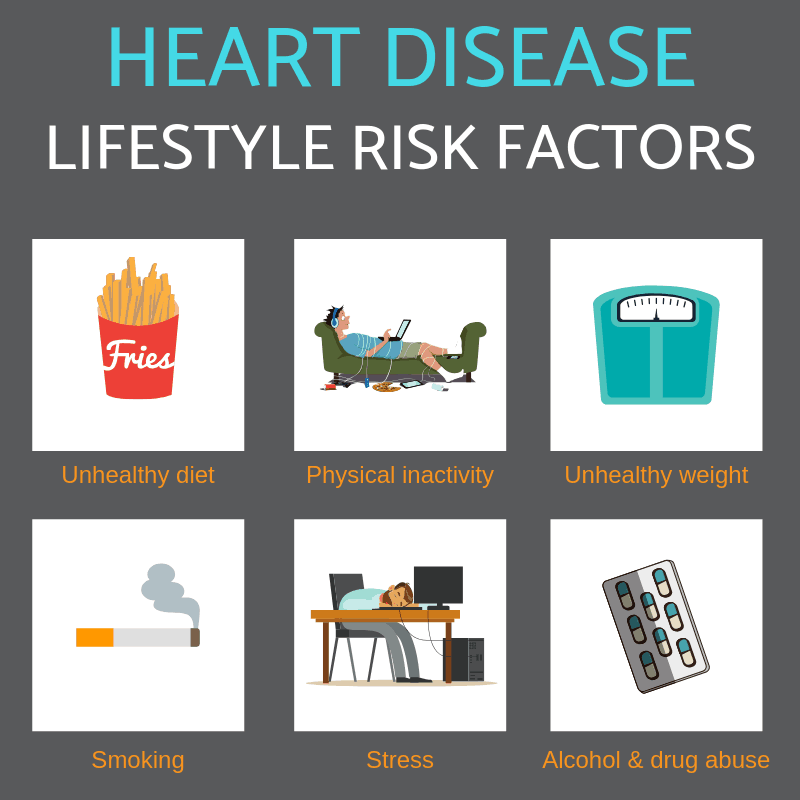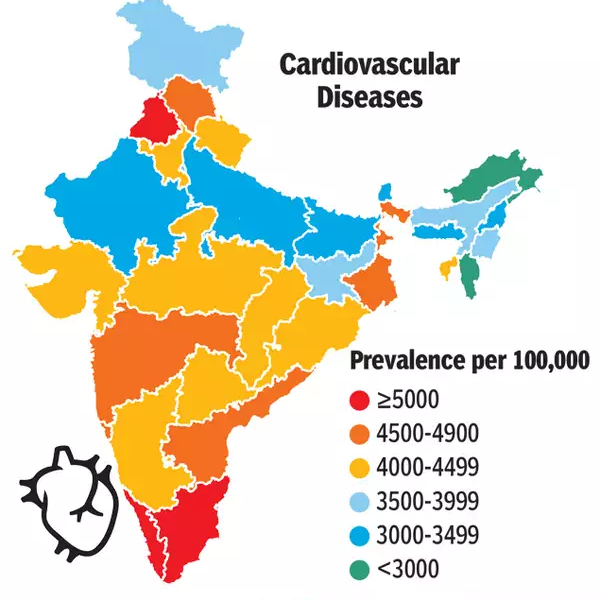The Surprising Ways Your Lifestyle Impacts Heart Health


Your heart is your life force, yet so many of us take it for granted. We go through life eating junk food, not exercising, and dealing with constant stress without even thinking about how it impacts our ticker. But the truth is, your lifestyle choices have a huge effect on your heart health. In this article, we’ll explore some of the not-so-obvious ways your daily habits can either strengthen or weaken your heart. You might be surprised to learn just how much control you have over this vital organ. After reading this, you’ll walk away with simple, practical tips to show your heart some love. Even small changes to your routine can make a big difference, so let’s dive in and learn how to keep that blood pumping!
Understanding Lifestyle Heart Disease
As the old saying goes, “you are what you eat.” The foods you consume and the way you live your life can have a significant impact on your heart health. Lifestyle factors like unhealthy diet, lack of exercise, stress, sleep, and unhealthy habits are major contributors to heart disease and other cardiovascular problems.
Unhealthy Diet
Unhealthy Fats: When you consume excessive saturated and trans fats, they build up in your arteries as plaque. This plaque narrows the arteries, reducing blood flow to your heart. This restricted flow forces your heart to work harder and weakens it over time, increasing the risk of angina (chest pain) and heart attack.
Lack of Exercise
Lack of Movement: Regular physical activity strengthens your heart muscle, allowing it to pump blood more efficiently. Without exercise, the heart muscle weakens, leading to inefficient blood flow and decreased oxygen delivery to the body’s tissues. This can cause fatigue, shortness of breath, and an increased risk of heart failure.
Chronic Stress
When you’re constantly stressed, your body releases hormones like cortisol and adrenaline. These hormones raise your blood pressure and heart rate, putting extra strain on your heart. Over time, chronic stress can damage the blood vessel lining and increase inflammation throughout the body, both factors contributing to heart disease.
Poor Sleep
When you don’t get enough sleep, your body doesn’t have adequate time to repair and recharge. This can lead to hormonal imbalances, including increased cortisol levels, which contribute to high blood pressure and inflammation – risk factors for heart disease. Additionally, sleep deprivation can disrupt your body’s natural ability to regulate blood sugar, potentially leading to diabetes, another risk factor.
Smoking
Smoking directly damages the lining of your blood vessels, making them more susceptible to plaque buildup. It also increases the risk of blood clots by interfering with your blood’s clotting ability. These combined effects significantly narrow arteries, reduce blood flow to the heart, and raise the risk of heart attack and stroke. Smoking also weakens your heart muscle and decreases its pumping efficiency.
Making lifestyle changes may be challenging, but your heart will thank you. Talk to your doctor about the best ways for you to improve your diet, increase exercise, reduce stress and get better sleep. Every small step you take towards a healthier lifestyle will have big benefits for your heart and overall wellbeing.
The Impact of Diet on Cardiovascular Health
What you put into your body has a direct effect on your heart health. Following an unhealthy diet high in saturated fat, salt, and processed carbs can increase your risk of high blood pressure, high cholesterol, obesity, and diabetes-which are all risk factors for heart disease.
Limit Saturated Fat and Red Meat
Diets high in saturated fat from red meat and full-fat dairy products can raise LDL or “bad” cholesterol levels in your blood. Aim for no more than 6% of your daily calories from saturated fat. Replace some red meat with fish, chicken, beans, and legumes which contain heart-healthy fats.
Watch Your Salt Intake
Too much sodium in your diet can cause high blood pressure and lead to heart disease over time. Most of the sodium in the average diet comes from processed foods, fast food, and restaurant meals. Try to limit sodium to no more than 2300 mg per day. Season your food with herbs and spices instead of salt. Compare nutrition labels and choose low-sodium options whenever possible.
Choose Heart-Healthy Fats
Not all fats are bad for your heart. Monounsaturated fats from olive oil, nuts, and avocados and polyunsaturated fats like omega-3s in fatty fish can help lower heart disease risk, Aim for two servings of fish per week and use olive or canola oil for cooking and salad dressings. Snack on a handful of almonds or walnuts each day.
Eat More Whole Grains and Fiber
A diet high in whole grains, fruits, and vegetables provides fiber that can help lower cholesterol and control weight. Try to get at least 25 to 30 grams of fiber per day from oats, barley, beans, broccoli, berries, and other high-fiber foods. Limit processed grains like white bread and white rice which have little nutritional value.
Making healthy changes to your diet can have life-changing benefits for your heart and overall health. Focus on lean proteins, heart-healthy fats, and fiber-rich whole foods for the biggest impact. Your heart will thank you!
Prevalence of Cardiovascular Diseases in India
This infographic from The Times of India shows the prevalence of cardiovascular diseases (CVDs) across India. CVDs are the leading cause of death in India, and the infographic shows that the prevalence of CVDs is highest southern parts of the country. The infographic also includes a key that explains the different levels of prevalence. For example, areas in red have the highest prevalence of CVDs, with more than 5,000 cases per 100,000 people.
Here are some other facts about CVDs in India:
- One in four adults in India has high blood pressure, a major risk factor for CVDs.
- Diabetes is another major risk factor for CVDs, and India has one of the highest rates of diabetes in the world.
- Unhealthy lifestyle habits, such as smoking, tobacco use, unhealthy diet, and physical inactivity, also contribute to the high burden of CVDs in India.
Take Charge of Your Heart Health with Cardiodiet: The Ayurvedic Way
Heart disease is a leading health concern globally. While medication plays a crucial role in managing this condition, focusing on a heart-healthy lifestyle is equally important. This includes a well-balanced diet, regular exercise, and stress management.
The Power of a Cardiodiet
The Cardiodiet formula is designed to complement your heart-healthy lifestyle by providing a blend of natural ingredients that may potentially support healthy heart function.
Cardiodiet’s Potential Benefits
Healthy Blood Pressure: The ingredients in Cardiodiet may contribute to potentially maintaining healthy blood pressure levels.
Improved Circulation: This formula may offer potential benefits for supporting healthy blood flow throughout the body, including the coronary arteries that nourish your heart.
Cardiodiet is intended as a dietary supplement and should be used alongside a healthy lifestyle for optimal heart health. This includes:
Eating a balanced diet: Focus on fruits, vegetables, whole grains, and lean protein while limiting unhealthy fats, processed foods, and added sugar.
Regular exercise: Aim for at least 30 minutes of moderate-intensity exercise most days of the week.
Managing stress: Find healthy ways to manage stress, such as yoga, meditation, or spending time in nature.
Taking Control of Your Heart’s Health
Prioritizing a heart-healthy lifestyle is key to managing and potentially reversing the effects of heart disease. Explore how a Cardiodiet supplement, combined with a healthy diet, exercise, and stress management, can empower you to take charge of your heart health.
Conclusion
Your heart health is significantly impacted by your daily habits. Simple changes to your diet, exercise routine, stress management, and sleep patterns can make a world of difference. The Cardiodiet formula can serve as a valuable supplement alongside these lifestyle changes, potentially supporting healthy blood pressure and circulation. Remember, consult your physician before starting any new supplement and discuss how to create a holistic approach to keeping your heart strong and healthy.






